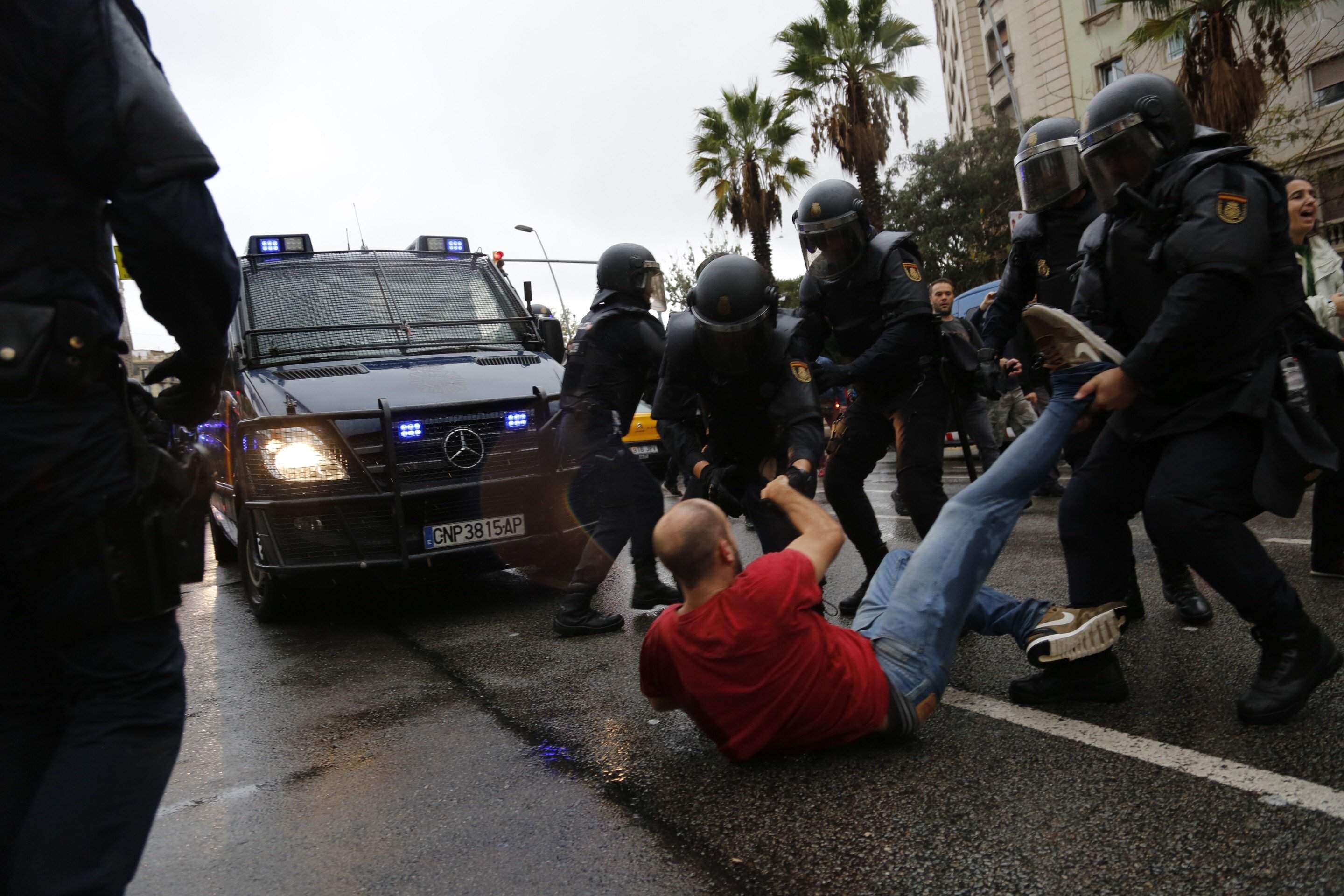A Barcelona court has confirmed that 46 Spanish National Police officers will go to trial over the violence that occurred during the Catalan independence referendum, on October 1st, 2017, at several schools in the Catalan capital. The decision, by the provincial Barcelona Audience court, ratifies the decision of Barcelona investigating judge Francesc Miralles, who sees sufficient evidence that officers committed crimes of causing injury and offences against moral integrity to bring the case to trial, according to a resolution which has emerged this Thursday. However, the court denied the request for 21 other police officers to be indicted in the case, considering that the evidence for their actions is weak or that the request for their prosecution was made outside the time allowed.
In particular, the Barcelona Audience dismisses all the appeals lodged against the case by the Spanish police officers, who claim that they did not commit any crime or that the alleged offences are minor crimes that are now time-barred. The court states that the indications are that "the events described go beyond simple crimes of injury and clearly suggest that some conduct could be categorised as crimes against moral integrity committed by public officials". And it asserts that all the officers' actions, even though they took place in 27 different polling stations - most of them, schools - have to be tried in the same judicial proceedings.
More than 6 years later
The co-director of the human right organization Irídia, Anaïs Franquesa, reacted positively to the decision by the court, highlighting that "it concludes that the action of the Spanish police was disproportionate and, therefore, criminal". The lawyer recalled that this investigation "has lasted six and a half years" and that it has been thanks to "the impetus of civil society, since - she added - the public prosecutors have been passive and have defended the actions of the police". In addition to those affected, both Irídia and the pro-independence organizations Òmnium Cultural and the Catalan National Assembly are named as able to conduct private prosecution in this case.
An amnesty for the officers?
The next step will be for the prosecutions to present their indictments and the sentences they demand for the officers. In cases of minor crimes, they could be time-barred, but police officers who are accused of crimes against moral integrity will not be. In addition, there remains the question of whether the officers, in the end, ask to take advantage of the amnesty law for independence process prosecution. The proposed law is at present stalled in its parliamentary process, and while the final text is still uncertain, it could easily accommodate those who are charged with minor offences.
Objective criteria
In the resolution, the Barcelona Audience spokesperson-judge Eduardo Navarro dismisses all the appeals made by both prosecutions and defences in the case, and maintains that the investigation carried out by judge Miralles was "extensive and with objective and impeccable criteria", as it detailed what each officer did and in which school, grouping them with statements by those affected and by the officers, and above all with the support of videos.
The court, however, criticizes that some of the prosecutions wanted sought to bring to trial all the command figures of the Spanish police force, which it described as a "general case", and said it would only the prosecution of those [leaders] who permitted the improper use of their legal weapons, and those who, in some cases, also hit referendum voters.

